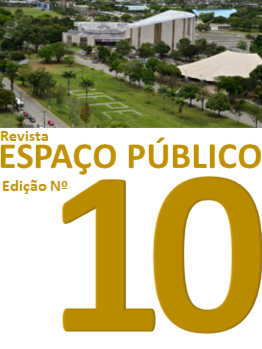CONTRIBUIÇÕES DAS TEORIAS PÓS-CRÍTICAS NO CURRÍCULO E NAS PESQUISAS
Abstract
The curriculum is a document that organizes the knowledge produced throughout human history, the ways of transmitting and assimilating it, and which is influenced by curriculum theories. Among these theories, the post-critical ones stand out, which emerged as a way of extending and deepening the discussions initiated by critical theories, seeking to address topics that were considered “taboo” in society, such as gender, sexuality, race, ethnicity, that is, all aspects that encompass the sphere of identity, in addition to problematizing power relations. Thus, the objective of this essay is to re(cognize) the contributions of post-critical theories in curriculum and research. To this end, the book “Identity Documents: an introduction to curriculum theories”, by Tomaz Tadeu da Silva, was used as a basis for analyses of the curriculum. As for the analyses regarding the research, the book “Post-Critical Research Methodologies in Education”, by Dagmar Estermann Meyer and Marlucy Alves Paraíso, was used. As a result, although schools still adopt traditional curricula, centered on content and teaching techniques, post-critical theories have made contributions to curriculum and research. Among them, multiculturalism stands out, which breaks the ideas of a hierarchy of cultures, that is, of a “high culture” and a “low culture”, deconstructs standardized social constructions and values knowledge originated by “common sense”.
Downloads
Published
Issue
Section
License
Copyright (c) 2025 João Victor Pereira dos SANTOS, Carlos Alberto de VASCONCELOS

This work is licensed under a Creative Commons Attribution 4.0 International License.
DECLARAÇÃO DE DIREITO AUTORAL A proposta de publicação observa e atende a Lei de Direito Autoral n. 9610/98, a Lei nº 5.805/72, bem como os Acordos e Tratados Internacionais de Direito Autoral em vigor no Brasil, quais sejam: Convenção de Berna para a Proteção de Obras Literárias e Artísticas (Decreto Nº 75.699, DE 6 DE MAIO DE 1975), Convenção Universal sobre o Direito de Autor (Decreto Nº 76.905, de 24 DE DEZEMBRO DE 1975), e a Convenção Interamericana sobre os Direitos de Autor em Obras Literárias, Científicas e Artísticas (Decreto Nº 26.675, DE 18 DE MAIO DE 1949). Os direitos sobre as publicações nesta revista eletrônica pertencem ao(s) autor(es), com direitos de primeira publicação cedidos à Revista Políticas Públicas. Em virtude do caráter eletrônico da revista, os artigos são de uso gratuito em aplicações educacionais, sem fins comerciais e disponibilizados na Internet no site da revista, com livre acesso ao público geral.
